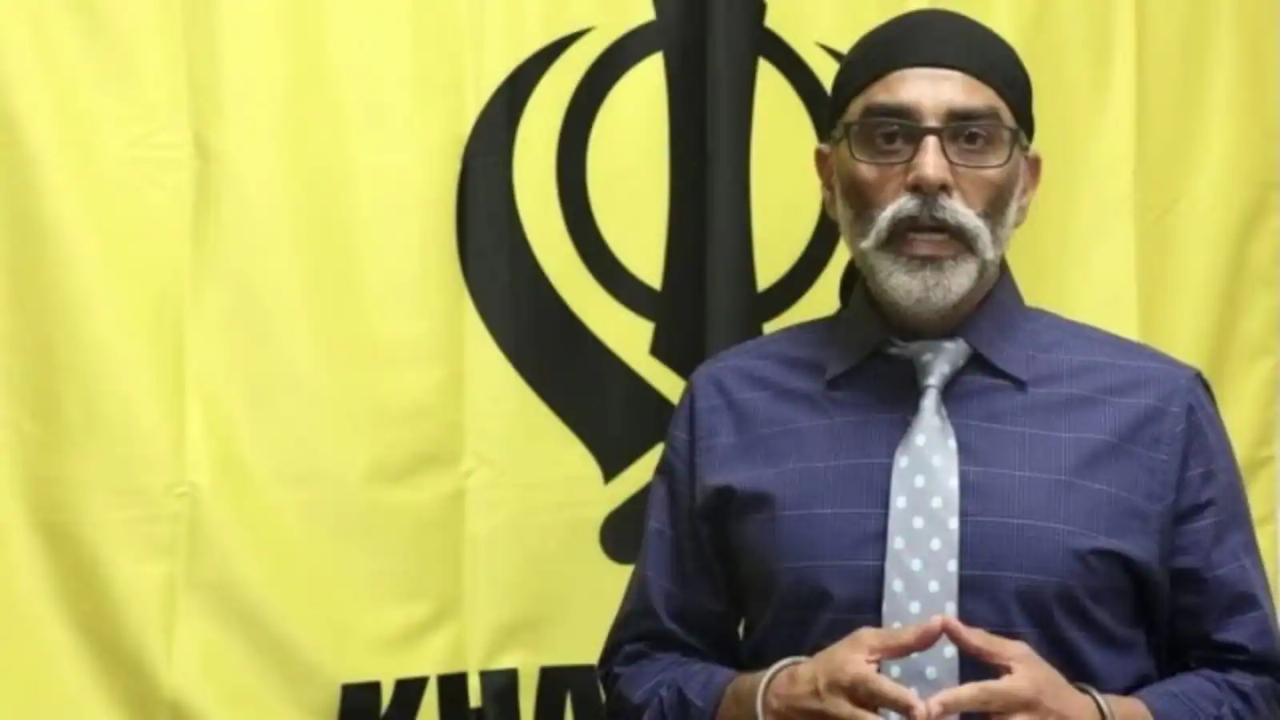Reports suggesting that the Indian State could be involved in a plot to assassinate Khalistani separatist Gurpatwant Singh Pannun on US soil have surprised New Delhi, which has always maintained that such acts were never a part of its policy.
According to a report in the Washington Post, the Biden administration had warned New Delhi, after intelligence reports were received regarding a plan to kill American Canadian citizen Pannun, who in the past, has been issuing provocative statements supporting the demand for creating a separate Sikh state.
“We are treating the issue with utmost seriousness and it has been raised by the US government, including at the senior most levels,” National Security Council spokeswoman Adrienne Watson said in a statement on Wednesday.
She stated that while expressing surprise and concern, the Indian counterparts maintained that activity of this nature was not their policy. However, the Indian government was “further investigating the issue”.
Earlier there was a report in the Financial Times which said that the US government had filed a sealed indictment against at least one alleged perpetrator of the plot in a New York district court.
The US Department of Justice is debating whether to unseal the indictment and make the allegations public or wait till Canada finishes its investigations into the assassination of Hardeep Singh Nijjar outside a gurdwara in British Columbia. Nijjar was gunned down by unknown assailants but Prime Minister Justin Trudeau had claimed that it was a targeted killing on the Canadian soil by agents of the Indian State.
India-Canadian relations have deteriorated since the statement was made on the floor of their Parliament and New Delhi responded sharply to the accusation by downsizing the Canadian mission, sending back at least 40 diplomats posted in India. It has been the thinking here that Trudeau had acted in an irresponsible manner and under pressure from Sikh ultras who support his government. Nijjar had in fact been killed because of inter-gang rivalry and the Indian State had nothing to do with the shooting.
In case of Pannun, who has often released videos critical of the Indian government, which were widely circulated, New Delhi has reacted differently. While on the Nijjar issue, it had challenged the intelligence inputs provided by Five Eyes, the intelligence cooperative group of five countries including the US, Canada, UK, Australia and New Zealand, its reaction to the US charge is more guarded.
The contention is that intelligence reports are often not evidence since for courts to take action, admissible evidence is needed and Canada has so far failed to provide such material of any nature to India.
However, in case of Pannun, the details are awaited and many in the Indian intelligence community are surprised over the development. There was a thinking in some quarters in Punjab earlier that Pannun was aligned with some Indian intelligence outfit and his utterances were timed to create a certain impression to substantiate media reports here back in India.
However, some time ago, Pannun’s assets in Chandigarh and some other locations in Punjab were sealed and taken over by the NIA to put an end to any such speculation though the Khalistani separatist continued to spew venom from his abode abroad.
What also is difficult to digest is that why would the Indian State target Pannun in the US when he and his statements lacked any substance other than inflaming separatist passions. Nevertheless, the allegations by the US authorities, particularly after the matter has been filed in a court, need to be viewed with great concern.
It is also being ascertained if Pannun’s attempted killing was a plot hatched by a Western intelligence agency and designed to malign the Indian State by creating the perception that New Delhi was attacking foreign nationals on their home soil, which was contrary to what was being officially claimed. Such things are common when cloak and dagger games are played.
Back in India, there is anxiety both in the Ministry of External Affairs as well as the intelligence community regarding the veracity of these charges. While many countries have in the past killed persons inconvenient to the ruling dispensations on foreign soils, no such incident was ever attributed to India prior to the Nijjar killing. There is a section which believes that such acts could not be ruled out since the image of the Indian state was changing; its capacity to strike had enhanced many times over.
However, New Delhi has earned respect of the international community because of its responsible manner, using negotiations and diplomacy to achieve its goals rather than targeted killings. This kind of behaviour would be very difficult to endorse and could have wide ranging ramifications, if the accusations get substantiated with credible evidence in any court of law.
The Central Intelligence Agency of the United States has been known for executing plots to get rid of prominent but inconvenient people around the world. There have been claims that former Indian Prime Minister Lal Bahadur Shastri, atomic scientists, Homi Bhabha and Vikram Sarabhai could have been victims of a conspiracy hatched at Langley. At one stage, there was a US conspiracy angle that was also probed while the investigations into the Indira Gandhi assassination were on but there was no conclusive evidence regarding this ever.
Gurpatwant Singh Pannu may be a Sikh extremist but use of any kind of extra-judicial means to eliminate him or anyone else cannot be endorsed. The rule of law is supreme. Between us.

